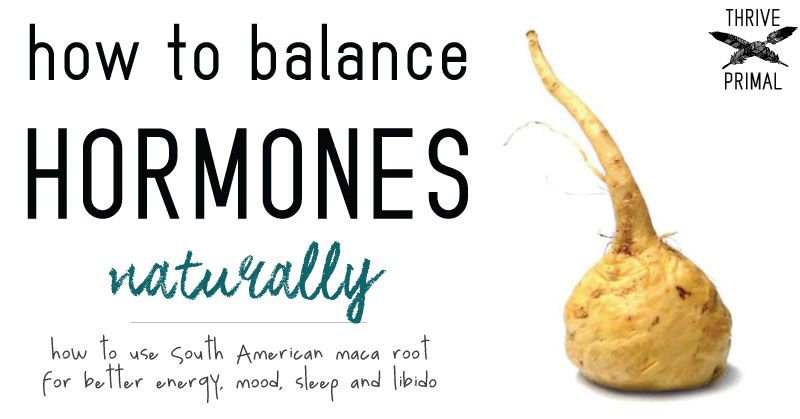Why hormones are so vital to wellbeing
When we hear the word ‘hormones’ most of us probably think of moody, pimply faced high school kids. However, the truth is hormones aren’t just about PMS and overly randy teenagers, they are actually the chemical messengers that control many of the body’s functions.
Hormones are chemical messengers that travel throughout the body coordinating complex processes like growth, metabolism, and fertility. They can influence the function of the immune system, and even alter behavior. Before birth, they guide development of the brain and reproductive system. Hormones are the reason why your arms are the same length [and] why you can turn food into fuel… It is thanks to these chemicals that distant parts of the body communicate with one another during elaborate, and important, events. (source)
If you have issues with weight, mood, energy, sleep, skin or fertility, it’s likely that you have a hormone imbalance.
How hormones get out of whack
Modern living throws lots of toxins at us, especially through synthetic medications, pollution and plastics. These chemicals, along with stress, excessive inactivity and irregular sleep cycles can leave us with an imbalanced body. Finally, poor nutrition leaves us short of the raw materials we need to build healthy hormones.
How to balance hormones naturally with maca root
Maca is a South American root vegetable related to a radish. The best way to use it is as a powder or in a capsule. I like this maca supergreens drink created by hormone expert Dr Anna Cabeca. If you want to check it out, you can click the image below (opens in a new tab).
Here are some benefits of maca root and why it’s a great choice for balancing hormones naturally:
HELP WHERE YOU NEED IT: Maca is special in that it doesn’t impose a certain effect on you (like drugs do). It is adaptogenic, meaning that it supports the body in healing. It allows the body to adapt and balance in whatever way it needs to. It helps the body produce more healthy hormones wherever they might be lacking in your particular case. (source) It doesn’t actually contain hormones, or hormone-imitating substances, but rather provides the body with raw materials to produce what it needs to heal itself.
MOOD: Another way maca can help you adapt to the stressful modern environment is by acting as a gentle anti-depressant and sedative. (source) It simultaneously helps to balance mood while decreasing anxiety.
LIBIDO: Maca contains multiple nutrients such as calcium, potassium, iron, magnesium, phosphorus, zinc, sterols, essential fatty acids, fiber and amino acids. This nutrient density allows the body to build more sex hormones. Women and men both report a healthy increased libido when using maca. It has even earned the nickname “nature’s viagra”. (source) We all know that sex is highly therapeutic, both personally and for our relationship. Get your maca on! ;)
FERTILITY: Through the action of balancing hormones and providing vital nutrients, maca is able to boost fertility in both women and men.
Maca has been scientifically researched for the use of increasing fertility since 1961 [and has been used nutritionally for thousands of years by South American civilizations] and has been shown to contain specific compounds called glucosinolates which directly can affect fertility for both men and women. These alkaloids are responsible for maca’s ability to support hormonal balance. (source)
ENERGY: By supporting the endocrine system including the adrenal glands, which are often exhausted by cortisol production when we under-sleep and over-caffeinate, maca helps balance us out for a smoother source of energy.
NO SIDE EFFECTS: According to this article based on this study, maca “lowers measures of sexual dysfunction independent of estrogenic and androgenic activity, meaning that it benefited the subjects’ moods and libido without negatively affecting their sexual hormones. 
Some people may experience mild stomach upset when using a plain (non-gelatinized) form of maca, so try this gelatinized form which is easy to digest. Some women also may notice a change in their menstrual cycle; this is just a sign that the hormones are on their way to becoming balanced. (source)
My top maca recommendation
I really like this maca supergreens drink created by hormone expert Dr Anna Cabeca. It contains not only maca but several other superfoods such as spirulina, resveratrol and curcumin, all blended into a tasty green drink. I like it in my tall glass water bottle with a squeeze of lemon juice. If you’d like to try Mighty Maca Greens for yourself, you can order your jar HERE.
Have you tried maca?
Overall maca is a highly beneficial and health-supporting herb that I think most people could benefit from. There is negligible if any sign of harmful effects, and a wide range of benefits. If you’d like to know more, this article provides a really good summary of the types of maca available and the wondrous health-giving powers they bestow to the informed consumer.
Have you tried maca? If so, what form do you find is best, and how did it help you? Share below in the comments, or on Facebook!






